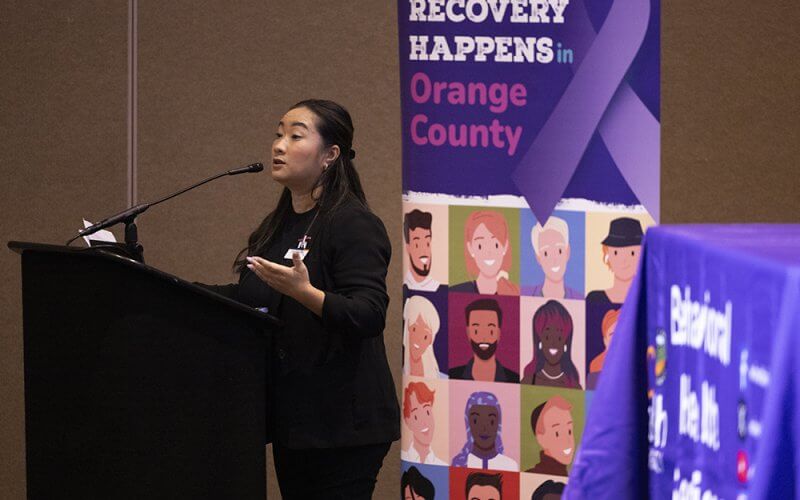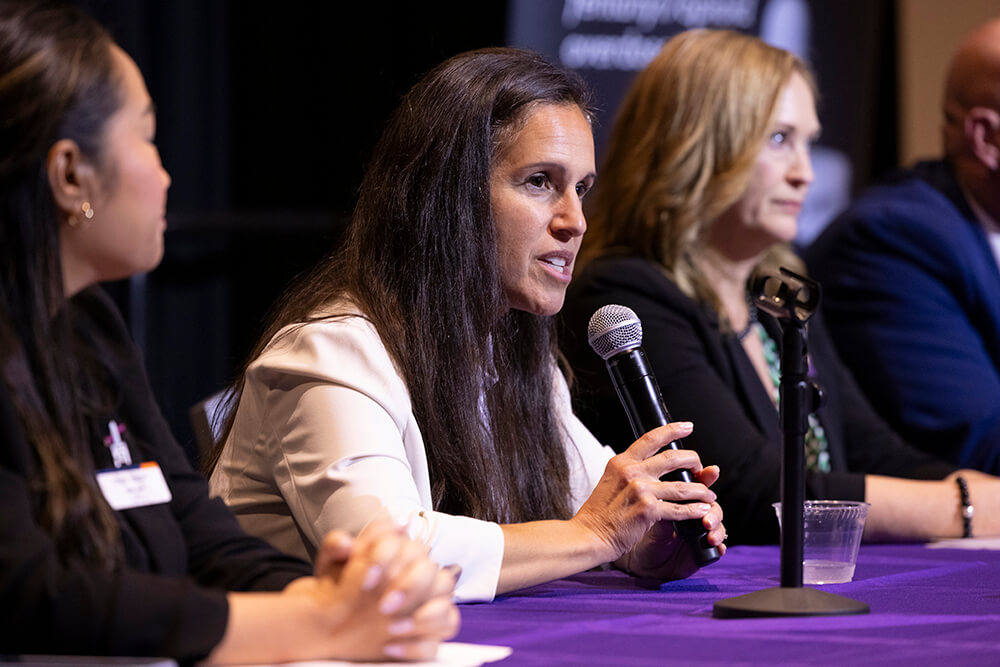
Cal State Fullerton hosted a town hall event to address the dangers of illicit opioids and provide solutions to reduce the amount of overdose deaths each year.
At the Feb. 5 event, CSUF experts were joined by local leaders from OC Health Care Agency to discuss the rise in opioid availability in recent years and the steps that CSUF students, faculty and staff can take to help within their communities. This included a step-by-step guide to administering Naloxone and Narcan, medications that reverse an opioid overdose.
The event was hosted by the Office of Government and Community Relations in partnership with the College of Health and Human Development, OC Health Care Agency, and Orange County Board of Supervisors Chairman Doug Chaffee.
According to the National Institutes of Health, the number of overdose deaths in the United States surged in 2020 during the COVID-19 pandemic. This increase in opioid overdose deaths has been attributed to such factors as reduced access to interventions, increased levels of stress and loss of mental health support.
During this time, illicit fentanyl, a type of opioid that is 50 times stronger than heroin and 100 times stronger than morphine, also became more readily available. Experts from OC Health Care Agency stressed that fentanyl is not easily detected, so it’s possible that people could be ingesting a lethal dose without realizing it. This makes awareness and education paramount in addressing this widespread issue.
“The opioid crisis does not discriminate. It affects people from all walks of life, and it requires a collaborative response through education, prevention and support,” said Celestina Barbosa-Leiker, dean of the College of Health and Human Development.

Research and Resources on Campus
As a substance use researcher with more than 20 years of experience, Barbosa-Leiker has studied substance use in underserved populations, demonstrating the gender differences in the measurement of opioid withdrawal, relapse while in treatment and predictors of relapse.
She found that women using synthetic opioids has created a surge in the opioid epidemic, and that their use of opioids is often tied to such external factors as PTSD, trauma, domestic violence and sexual assault.
To raise awareness for substance abuse disorders, Barbosa-Leiker said that it’s important to start conversations early. She said that many people assume that children’s first experience with opioids will happen when they’re older, but in reality, they might be prescribed an opioid for routine medical procedures like getting their wisdom teeth pulled.
“When that happens, talk to them about what an opioid is. Make sure that they know what they’re taking and that you are aware that it is their first exposure to an opiate. Use this opportunity to start that dialogue and bring that awareness,” said Barbosa-Leiker.
On campus, Titan Health offers opioid safety and Naloxone kit training. Since the training program was launched in 2023, more than 800 students, faculty and staff have completed training and received Naloxone as well as fentanyl test strips. Through Titan Health, students have the opportunity to attend in-person or virtual training and book appointments with certified peer mentors.
The center also hosts pop-up training sessions and group training for student clubs to encourage community members to learn about opioid overdose deaths and how to prevent them.
“Our mission goes beyond providing tools,” said Nina Tran, a health educator for Titan Health. “It’s about starting the dialogue surrounding substance use and overdose for our community here. We aim to reduce the stigma on substance use disorders, build awareness and empower our students with the confidence to take action when they see it and if an emergency arises.”